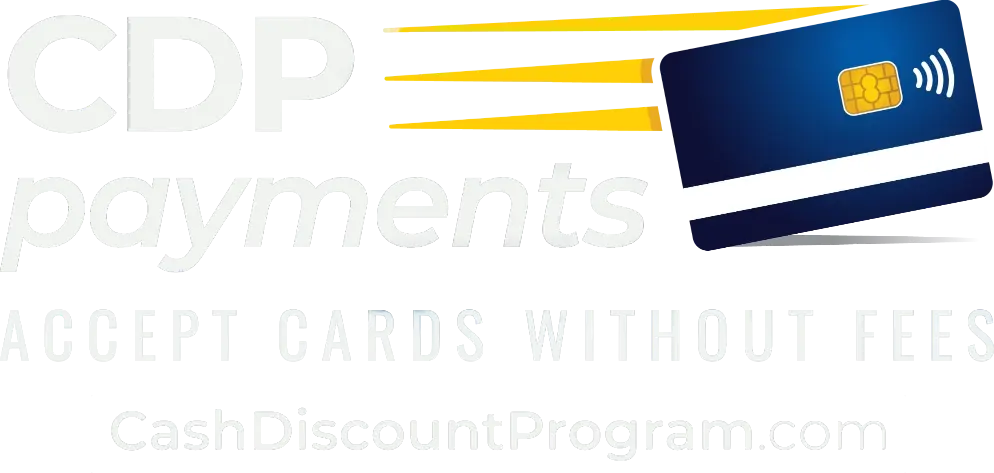Differences Between Debit Card vs Credit Card Merchant Fees
By Cash Discount Program on January 11, 2024

Debit and credit cards are the most common way for people to pay for a variety of goods and services. The majority of all transactions are made using a credit or debit card.
Since card payments are the preferred method, merchants find it best to accept both debit card transactions and credit card transactions to give customers options. While there are merchant fees involving both types of cards, accepting card payments can improve customer satisfaction and the overall shopping experience while potentially creating an increase in sales.
For a merchant account, every debit card fee and credit transaction can take its toll on your business. It’s also a concern for online transactions. When you’re trying to boost your bottom line, it is essential to consider how debit card transactions work compared to credit cards. Our Cash Discount Program will eliminate all credit card processing fees.
As such, there are some big differences between accepting debit card payments and credit card payments that every merchant should know.
What Is the Difference Between Credit Card and Debit Card Charges?
Credit and debit cards both cost merchants processing fees. Credit card transactions allow the cardholder to borrow funds from their issuing bank or financial institution up to their credit limit. This means that every time a customer uses a credit card, they are borrowing money to be repaid at a later time, generally with added interest.
Debit cards are linked to the bank account of the cardholder. Debit card transactions allow cardholders to make purchases with the funds they have available in their account. Debit card purchases are immediately deducted from the balance of the bank account that is linked to the card.
Card processing fees for merchants apply to both credit cards and debit cards but fees associated with debit card transactions are much less of a risk and require fewer steps for approval. This means that debit card transactions are cheaper for merchants compared to credit card transactions.
Despite this, each type of card can potentially impact your bottom line. It helps to take a deeper look at what differs between both forms of payment.
Transaction Fees
Debit card transaction fees are usually lower than credit card transaction fees. These are often done as a flat rate on each transaction. Credit card transaction fees are usually a percentage of the entire transaction amount. Essentially, debit transactions involve a fixed transaction fee while credit transactions vary. All transaction fees are eliminated when your business is on a Cash Discount Program.
Payment Processing Time
Typically, transactions for debit cards are usually processed and settled faster than for credit cards. Generally, it takes a day to settle debit cards while credit cards may take several days to settle.
Fraud Risks
Both types of transactions will always carry a risk of fraud but the liability and responsibility for any fraudulent charges differs. A credit card issuer is more likely to absorb the cost of these types of charges. For debit card issuers, they may have the merchant or cardholder cover it.
Chargebacks
When a customer disputes a transaction and requests a refund, this is known as a chargeback. These are more common with credit card payments, and they are costly and time-consuming to resolve for merchants.
Minimums and Surcharges
Merchants are permitted to use a surcharge program that requires a minimum charge for credit transactions or credit path debit transactions. They may also add a surcharge fee if it is permitted in their state, which can help mitigate processing fees.
However, debit cards have different regulations and merchants can’t require minimum purchase amounts for these kinds of transactions. They also can’t add a surcharge to people using debit cards.

Is There a Merchant Fee for Debit Cards?
While there are debit card merchant fees, they tend to be lower than credit card merchant fees. How much debit cards cost merchants will vary based on your industry
, but it is a flat fee per transaction. A Cash Discount Program will eliminate all fees on debit cards.
There are also debit card processing fees that depend on signature debit compared to PIN debit. When you have a customer who uses their debit card for a purchase, it will be processed either as a PIN debit that requires inputting the personal identification number or a signature debit transaction.
The PIN debit network fees and interchange fees will vary, but PIN debit transactions are much safer than signature debit transactions. This is because someone making fraudulent charges can easily forge a signature, but it’s much less likely they will have access to the PIN number linked to the customer’s bank account.
Additionally, touchscreen devices for signatures are problematic. It is difficult to write on them, leaving plenty of room for error. This means anyone could sign off for a purchase in this way, effectively committing fraud. Regardless of card association, having PIN transactions is a far safer method for accepting debit card payments or card-not-present transactions online compared to signature debit transactions.
Are the Fees for Credit Cards Higher Than Debit Cards?
Credit card processing fees are much more complicated than debit card processing fees. They can differ on a variety of factors, such as the type of card, the amount of the transaction, and the industry. Most credit card fees to merchants are interchange fees. These are based on a percentage of the total transaction amount and will vary depending on each individual card association.
Credit cards are revolving lines of credit between a customer and their issuing bank. Every time someone uses their credit card network to pay, your software will send the information to the payment processor. Payment processors then connect with the card company for validation of the transaction.
From there, the card association validates the transaction, verifying available funds with the issuing bank. If those funds are available, they are put on hold, allowing the money to be sent to the merchant. After this step, the bank’s response regarding the cardholder’s bank account goes back to the credit card company who will either approve or deny the transaction.
The payment processor will then display this decision back to you on your processing software. For an approval, the payment processor will let the funds stay on hold until the transaction is settled, and the processor will finalize the sale so that you get your payment.
Credit card transactions are riskier for banks as the cardholder could default on payment. This is why debit card fees tend to be lower than credit card fees for merchants.
Is It Cheaper to Have a Debit Card or Credit Card?
For merchants, debit card processing fees are cheaper than credit cards. Debit card fees are generally just a few cents charged to a merchant while credit card fees are a percentage of the total transaction amount.
If you are trying to save money, it may be best to encourage your customers to make payments with debit cards. The downside is that you should offer them a choice. Many people love to use credit cards as some card associations offer perks for using them.
For merchants, there are other ways to reduce the payment processor fees that can help them while providing a variety of ways a customer pays for their merchandise.

Strategies for Reducing Fees on Processing Debit Card Transactions
If you are a business owner, it is only logical that you look for ways to save money and improve your bottom line. There are many additional costs for credit card processing, but debit transaction fees also apply. It only makes sense that you should look for ways to reduce the impact of these fees.
Get All PIN Transactions to Run as Debit
A PIN pad makes it easier for debit card users to have a safer transaction. Without one, every debit card payment will automatically be processed as a signature debit payment. If you do not have a PIN pad, it is a wise investment to update and upgrade your payment terminals. You may also be able to choose your processing network, allowing you to find lower rates.
Offer Cash Discounts
Offering a cash discount for customers who pay using cash can make it a more attractive option compared to credit cards or debit cards. By giving your customers incentives to pay in cash, it can help reduce your debit card processing fees and credit payment processing fees. This creates a win-win situation for merchants and customers while offering yet another viable choice for an acceptable form of payment.
CashDiscountProgram.com is among the largest in electronic commerce and payment service organizations that can help you make this transition. Everything is processed and safeguarded for your complete peace of mind. It allows your customers to pay using the methods they choose and provides you with the solution you need to stay competitive in your industry without drowning in countless fees.
You can accept credit cards or accept debit cards, but with cash discount programs, it gives you one of the best ways to do business. Find out more about how the team at CashDiscountProgram.com can help you reduce your merchant fees today.
